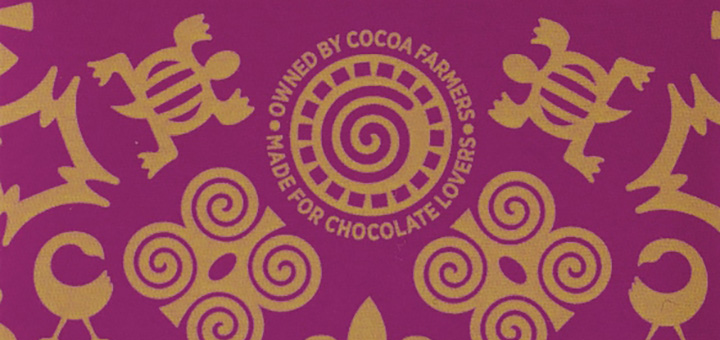Have you ever wondered what all those symbols on Divine Chocolate bars are? The cocoa farmers in Ghana, who grow the Fairtrade cocoa beans that make Divine chocolate so delicious, are proud of their Ghanaian roots and these symbols are a very important part of their history and culture.
Created in Ghana and Cote d’Ivoire West Africa, they are used in decoration at special occasions. Each holds a special meaning, conveying traditional wisdom and values.
| DWENNIMMEN “ram’s horns” 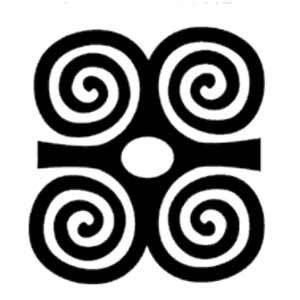 Symbol of humility and strength. The ram fights fiercely against other rams, but also submits humbly to humans. Even the strong need to be humble. | SANKOFA “go back and get it  Symbol of importance of learning from the past. A bird looking backwards. A proverb says: It is not wrong to go back for that which you have. | AYAMPATAPO “knot of reconciliation” 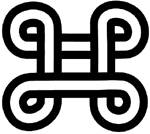 Symbol of reconciliation and peace-making. Wrapping a cloth or rope around two people’s hands is a sign of reconciliation. ‘Mpatapo’ is the knot that binds them. | ||
| FIHANKRA “house/compound” 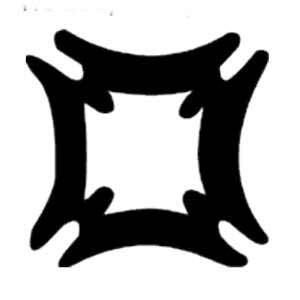 Symbol of security and safety. The communal housing compound has only one entrance and exit. | OWIA KOKROKO “greatness of the sun” 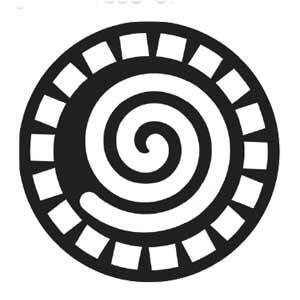 Symbolises vitality and renewal. The sun is the ultimate source of all life and vitality on Earth. | AKOMA “the heart” 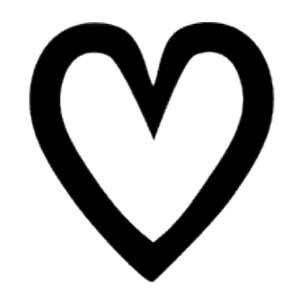 Symbol of patience and tolerance. A proverb says that if someone “has a heart in their stomach” they are very tolerant. | ||
| BOA ME NA ME MMOA WO “help me and let me help you” 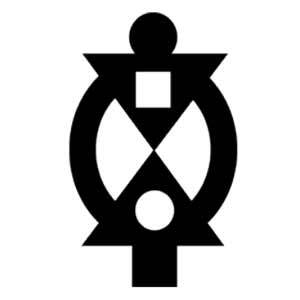 Symbol of cooperation. The two sides of the symbol are asymmetrical, but they work together as part of a greater whole. | ANANSE NTONTAN “spider’s web” 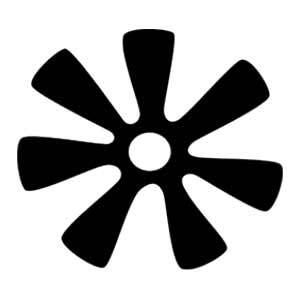 Symbol of wisdom, creativity and the complexities of life. Anansi the Spider is a wellknown character in West African folklore. | DENKYEM “crocodile” 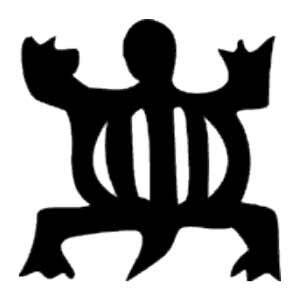 Symbol of adaptability. The crocodile lives in the water, yet breathes the air, demonstrating an ability to adapt to circumstances. | ||
| ASASE YE DURU “the Earth is heavy” 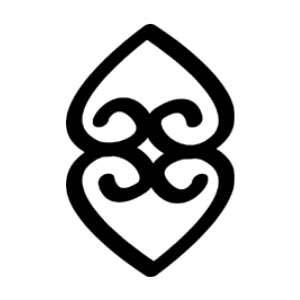 Symbol of providence and the divinity of Mother Earth. This symbol represents the importance of the Earth in sustaining life. | MATE MASIE “what I hear, I keep” 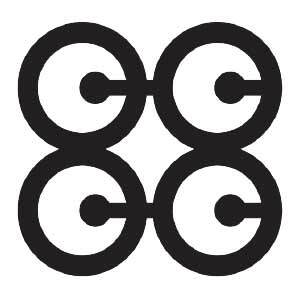 Symbol of wisdom, knowledge and prudence. Understanding means wisdom and knowledge, but it also means listening and taking into account what another person. | FUNTUNFUNEFU DENKYEM FUNEFU “Siamese crocodiles” 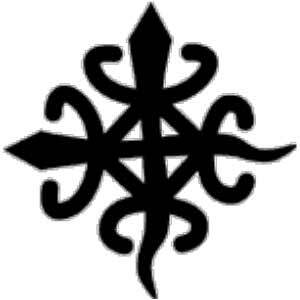 Symbol of democracy, and unity in diversity. The symbol is two crocodiles that share one stomach. | ||
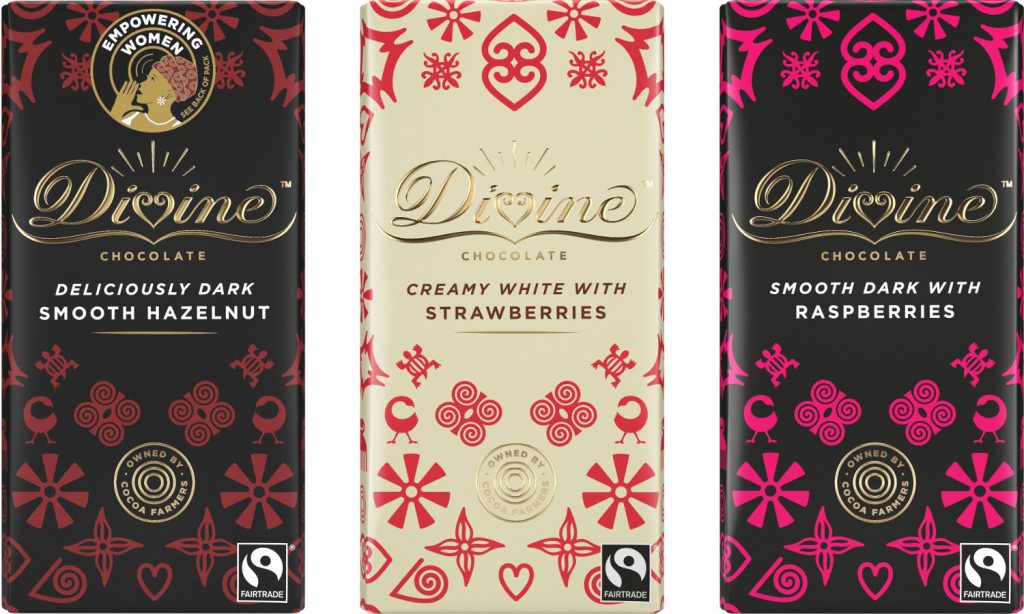
Divine Chocolate started in the early 1990s with changes in the cocoa market in Ghana prompting Nana Frimpong Abebrese to begin a farmer-owned company aiming to help farmers sell their own cocoa. To ensure the more benefits for cocoa farmers a new co-operative of farmers called Kuapa Kokoo was established on Fairtrade principles. The name Kuapa Kokoo means ‘good cocoa farmer’ in the local language of Twi. The Kuapa Kokoo co-operative started with a mission to ensure the welfare of its farmer members.
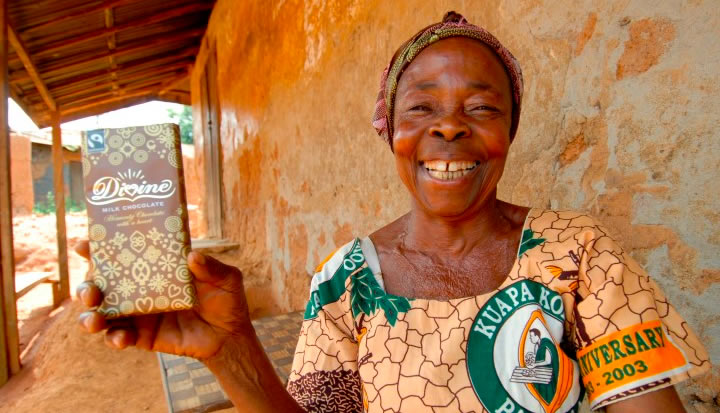
Starting with a membership of 2000 farmers from 22 villages, it was soon certified to sell Fairtrade cocoa which would bring a social premium enabling them to invest in their farms, communities and future. From then Kuapa Kokoo and Twin Trading launched The Day Chocolate Company in the UK with support from a range of businesses and charities. The Divine brand name is created with the first “Divine Fairtrade Milk Chocolate” bar on the shelves of UK shops. in 2007 Day Chocolate changes it’s name to Divine Chocolate along with a brand new design to better communicate its quality and unique credentials and signalling it’s Ghanaian ownership with the Adinkra symbols featuring on the wrappers.

